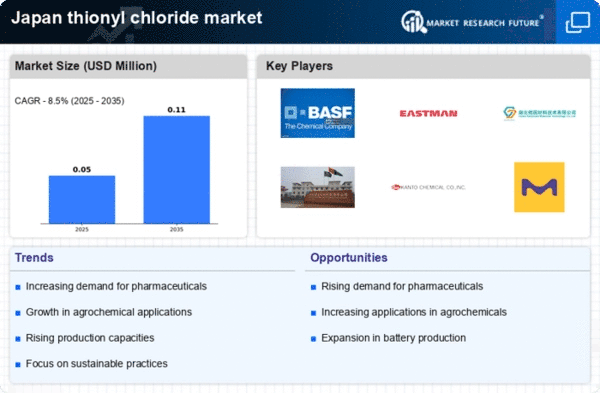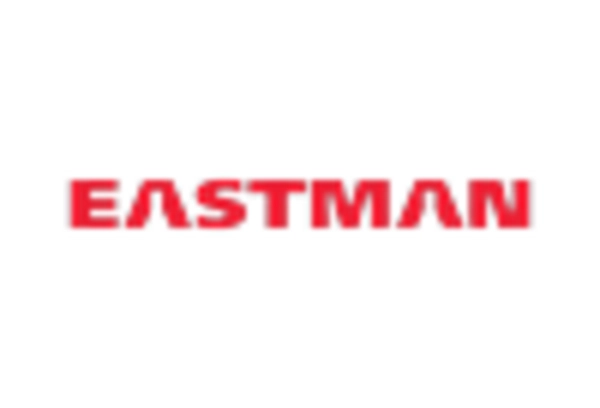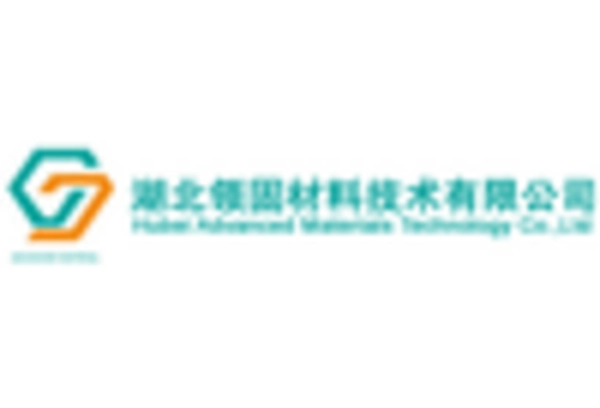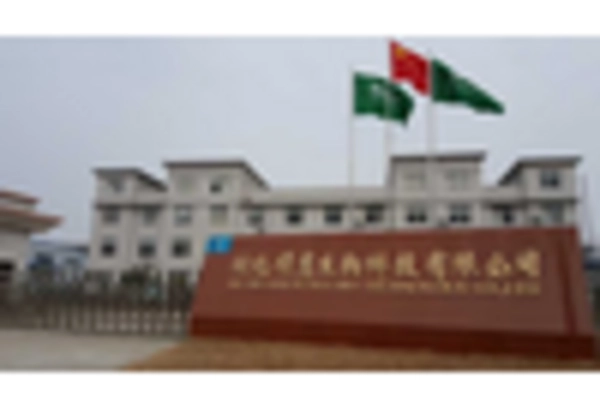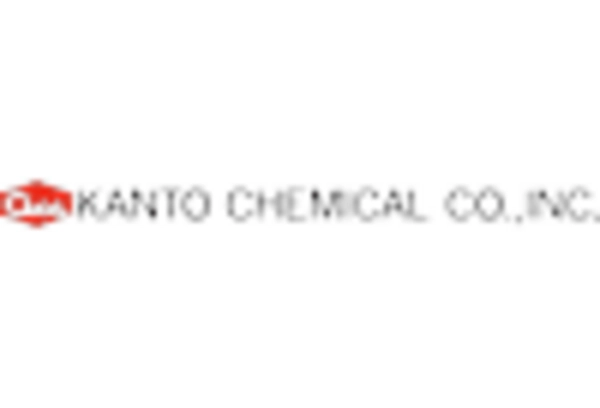The thionyl chloride market in Japan exhibits a competitive landscape characterized by a blend of established players and emerging companies, driven by increasing demand in pharmaceuticals, agrochemicals, and specialty chemicals. Key growth drivers include the rising need for efficient chemical intermediates and the expansion of the electronics sector. Major companies such as BASF SE (DE), Eastman Chemical Company (US), and Kanto Chemical Co Inc (JP) are strategically positioned to leverage their extensive R&D capabilities and global supply chains. Their focus on innovation and sustainability initiatives appears to shape the competitive environment, fostering a landscape where technological advancements and eco-friendly practices are paramount.In terms of business tactics, companies are increasingly localizing manufacturing to enhance supply chain efficiency and reduce lead times. The market structure is moderately fragmented, with a mix of large multinational corporations and smaller regional players. This fragmentation allows for a diverse range of products and services, although the influence of key players like Merck KGaA (DE) and SABIC (SA) remains significant, as they continue to set industry standards through their robust operational frameworks and strategic partnerships.
In October BASF SE (DE) announced a strategic investment in a new production facility in Japan aimed at increasing its thionyl chloride output. This move is expected to enhance BASF's capacity to meet the growing demand in the region, particularly in the electronics and pharmaceutical sectors. The investment underscores the company's commitment to strengthening its market position and responding to customer needs with greater agility.
In September Eastman Chemical Company (US) launched a new line of thionyl chloride derivatives designed to cater to the evolving requirements of the agrochemical industry. This product innovation not only diversifies Eastman's portfolio but also positions the company as a leader in sustainable chemical solutions, aligning with global trends towards environmentally friendly practices. The introduction of these derivatives is likely to enhance Eastman's competitive edge in a market increasingly focused on sustainability.
In August Kanto Chemical Co Inc (JP) entered into a strategic partnership with a local technology firm to develop advanced thionyl chloride applications for the electronics sector. This collaboration aims to integrate cutting-edge technology into Kanto's production processes, potentially leading to enhanced product performance and reduced environmental impact. Such partnerships reflect a broader trend in the industry towards innovation and technological integration, which is becoming essential for maintaining competitiveness.
As of November current competitive trends in the thionyl chloride market are heavily influenced by digitalization, sustainability, and the integration of AI technologies. Strategic alliances are increasingly shaping the landscape, enabling companies to pool resources and expertise to drive innovation. The shift from price-based competition to a focus on technological advancement and supply chain reliability is evident, suggesting that future competitive differentiation will hinge on the ability to innovate and adapt to changing market demands.


